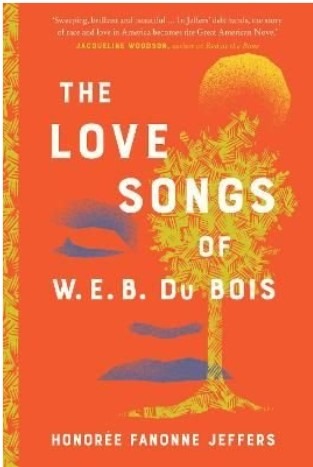search
date/time
 | Yorkshire Times Weekend Edition |

Caroline Spalding
Features Correspondent
8:07 PM 3rd February 2022
arts
Review: The Love Songs Of W.E.B. Du Bois By Honorée Fanonne Jeffers

In the book, Jeffers charts the map tracing the route from Ailey’s past to present, epitomising the notion that we are but a product of our history. We are invited into the lives of a family, the narrative journey moving forward as we witness our protagonist come of age. The challenges she faces are unique to her own existence yet also relevant to a broader demographic, and all the while we are reminded how history repeats, and characters alive in the past have resonance, their actions leave a legacy in the present.
The novel’s narrative timeline begins almost four centuries earlier, and it opens with the first ‘song’ – these are chapters that segue between the main storyline of the present. They take us back to recount the unknown history of Ailey’s predecessors – beginning at the time of slavery, travelling the complex path out of enslavement, through tyranny, displacement, and recurrent prejudice. Jeffers gives lyrical voice to these ghosts; we are thrust into their company, and we quickly understand their emotional temperatures. Jeffers provides us with context, we soon come to grasp the wider societal tensions, and even if we can’t empathise, we are at least aware of the rules and conventions that prevailed.
In the past, as in the present, we see society as a complex melting pot of identities, cultures and customs. We are reminded that America began as a multicultural society, how, even now, the blood and legacy of native Indians still permeates; how the African Americans who arrived as slaves, forged their own paths to integrate, to marry, and to breed.
At 800 pages long, it is not easy to capture succinctly all the narrative themes and questions the book poses the reader. It is Ailey’s story, who, as a historian, is tracing her own lineage and heritage, whilst searching for a sense of belonging.
Also by Caroline Spalding...
Review: Cold Enough For Snow By Jessica AuReview: Good Intentions By Kasim AliReview: Strangers I Know By Claudia Durastanti, Translated By Elizabeth HarrisWalking For Wellbeing – It Really Does WorkWeekend Walking: To MansheadIn a recent interview, Jeffers talked of both the beauty and the pain that is captured in the prose. Beauty emerges in the lyrical dialogue; we enjoy the spirited exchanges, we want to join their laughter, we recognise the strength in the bonds that connect them, yet we understand their sadness - pain is such a recurrent theme. Trauma haunts each generation, whether it be attributed to slavery, sexual abuse or drug addiction. The most difficult passages are written with great care; they are not intended to shock or disturb, but instead we feel a sympathy - these are secrets we are invited to share.
Jeffers’ prose is emotive, evocative and compelling throughout. A number of highly pertinent themes underpin the narrative, but we are also given a much broader perspective. For example, I had not truly been aware of the concept of ‘colourism’ yet it was fascinating to see how this plays out in the lives of each generation. It was curious to witness the response of communities to changing terminology, especially the transition from ‘negro’ to ‘black’, and subsequently to ‘African American’.
A successful poet, this is Jeffers’ first foray into prose, and I am glad to learn that it will not be her last. Another novel is in progress, and she recently reassured an interviewer, with a giggle, that the next will not be quite so long. Here is a writer of undoubted skill, her passion to inform as much as to entertain.
The Love Songs of W.E.B. Du Bois is published by 4th Estate, an imprint of Harper Collins